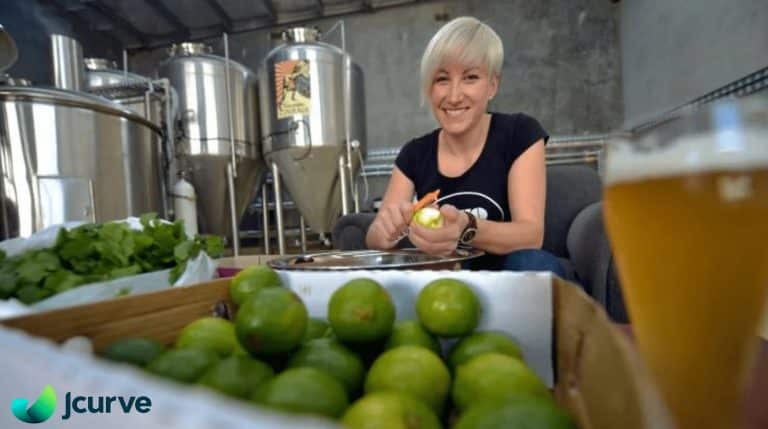Reality TV has brought cooking competitions to the masses, and I have to admit getting a little excited when I see the latest advertisements for each upcoming series. The heroes, the villains, the triumphs and defeats, and of course the tears. It all makes a good recipe for an engaging show.
Looking more closely at the processes contestants go through during their challenges, it becomes clear that a few secrets learned from these cooking shows can be applied to ERP software implementations to see greater success. Sound half-baked? Just wait and see…
Understanding the Challenge
Cooking shows love throwing challenges at their contestants, like “Make a dessert showcasing dragon fruit!” or “Use only green ingredients”. In a way, they’re lucky to have the challenge clearly defined so they can get stuck into creating the solution. ERP software implementations are undertaken because there are business challenges needing to be solved. For some companies, it may be inefficient processes that have crept in over time. For others, it may be dealing with a lack of real-time visibility of sales activity and profitability. Before you start an implementation, gain a clear view of your key challenges so you can focus on the solutions when your project begins.
Foundations First
 You wouldn’t start a Banoffee Pie recipe by whipping the cream that tops it off at the end. You’d start with the pastry foundation and build it from there. It’s the same principle with ERP implementations. You want to concentrate on the on the most critical functionality for your business, such as your accounts or your inventory processes, and make sure you have the right plan in place to build those important foundations that run your daily operations. Other, less crucial functionality can top off the implementation or be added once you have your core business processes sorted out. This is the approach that well-known Australian brand, Emma & Tom’s took to see their implementation progressing sooner. See our article on how to start simply and start quickly for further details.
You wouldn’t start a Banoffee Pie recipe by whipping the cream that tops it off at the end. You’d start with the pastry foundation and build it from there. It’s the same principle with ERP implementations. You want to concentrate on the on the most critical functionality for your business, such as your accounts or your inventory processes, and make sure you have the right plan in place to build those important foundations that run your daily operations. Other, less crucial functionality can top off the implementation or be added once you have your core business processes sorted out. This is the approach that well-known Australian brand, Emma & Tom’s took to see their implementation progressing sooner. See our article on how to start simply and start quickly for further details.
Good Data is Your Recipe for Success
Just like having a recipe with the clear, well-constructed data you need to create a masterpiece, the system data you migrate over to a new ERP can form your recipe for a successful implementation project. Spend some time working out what’s your most critical data, the accuracy of it, and clean your data up before bringing it over. Starting a new system with clean, consistent data can help drive better data-keeping processes and employee habits, helping it to stay complete and accurate going forward. It’s also a good time to consider if placing mandatory fields on records such as contacts and customer records could help improve your data consistency and act as a reminder of what information you need to be collecting for the various types of records.
Get Your Team Working Together
 I’ve seen quite a few cooking show melt-downs (and not just from tempering the chocolate) caused by teams who aren’t on the same page, are communicating poorly and are not working efficiently together. Make sure you involve all your ERP implementation stakeholders right from the start, be clear about timeframes, milestones and the expectations from those providing input, information or contributing to the project in any way.
I’ve seen quite a few cooking show melt-downs (and not just from tempering the chocolate) caused by teams who aren’t on the same page, are communicating poorly and are not working efficiently together. Make sure you involve all your ERP implementation stakeholders right from the start, be clear about timeframes, milestones and the expectations from those providing input, information or contributing to the project in any way.
Regular progress updates will keep everyone informed and work effectively as a team. Appointing an internal project manager is also a good idea as it provides stakeholders with a single point of contact should they need information or updates at any stage.
Get Ahead of the Learning Curve
So many cooking show contestants push themselves to learn new techniques and work with new foods as part of their reality-cooking-show-personal-growth experience. With time constraints and pressure to provide an impressive outcome, the results can yield more than a few dummy-spits. This is something you don’t want to see throughout your ERP implementation. You can, however, ease your new system users through their journey with the right documentation, an implementation process which includes stakeholders and end users in the setup, a comprehensive knowledge base of system information and localised post-implementation support resources. Be sure to ask the ERP vendor you’re thinking of working with if they can tick these boxes.
There are certainly a few key ingredients to a successful ERP software implementation, which is why working with a skilled team such as JCurve Solutions’ Professional Services team can be a big part of your recipe for success. For more information on how you can leverage best practice processes and the expertise of a highly qualified team, get in touch to start a conversation.










